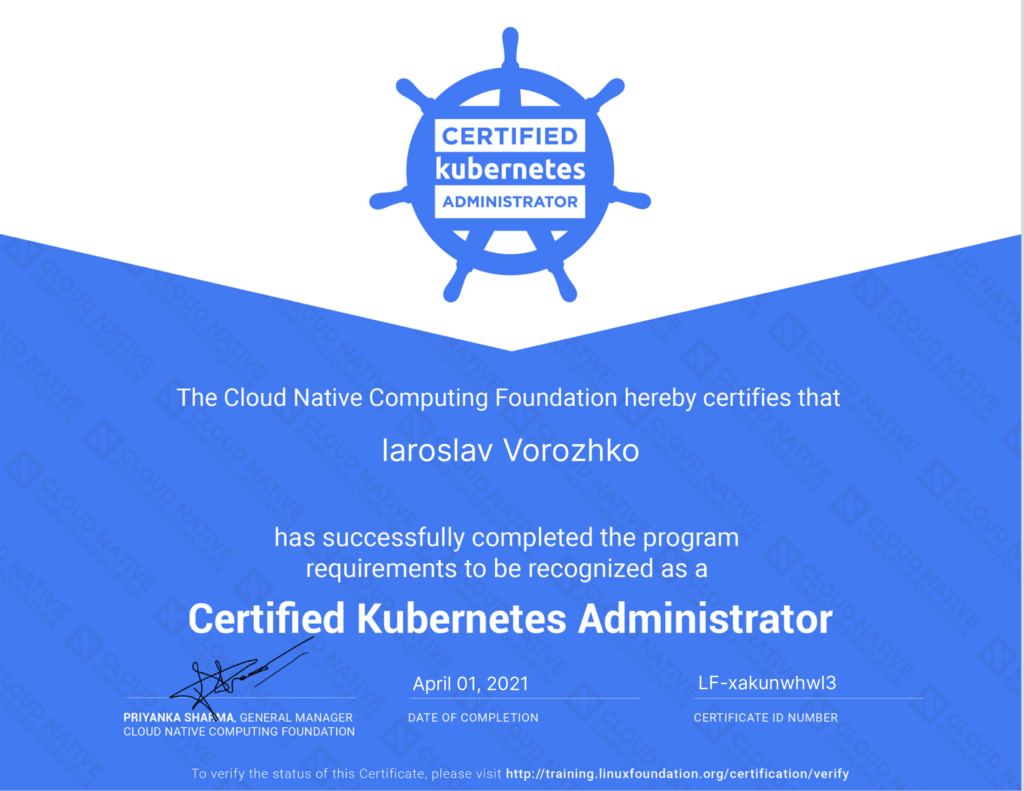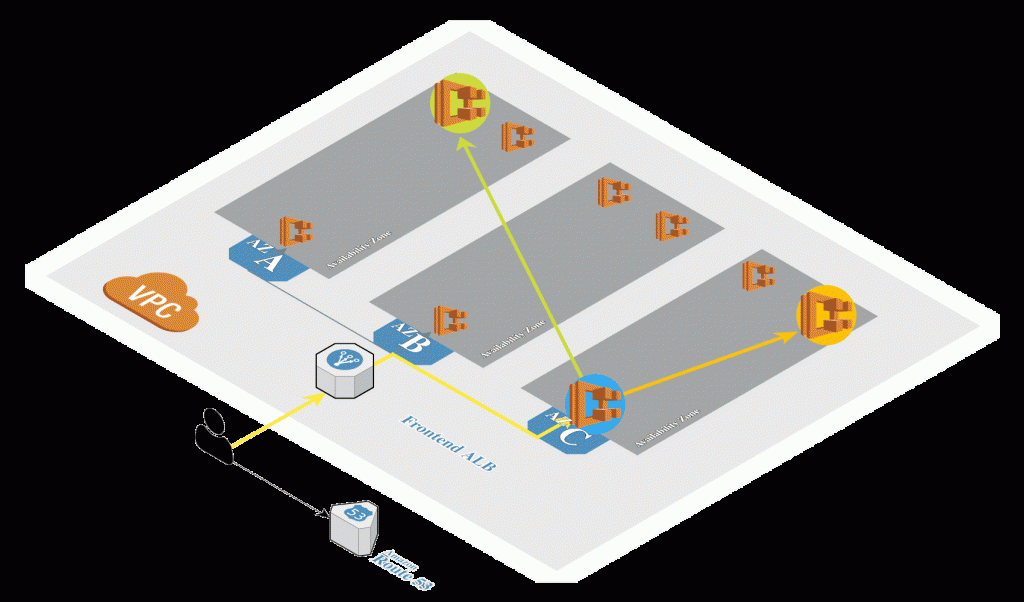
The CKA exam was a real challenge and great experience over all.
My first impression now I am officially part of Kubernetes world and CNCF.
But, I just love Kubernetes and it’s eco-system of open source projects and I had a lot of fun during my preparation and CKA exam. When you combine work with fun you can achieve really great results.
My advise for all future CKA participants is to have 80% of real Kubernetes practice and other 20% you can learn along the exam year.
From a practical aspect I have used Minikube to tackle with Deployments and other Kuberentes API related tasks. As for cluster administration experience I mostly used Vagrant boxes and Google Cloud VMs to get multi nodes setup and network capabilities.
My last advice is to build your Kubernetes knowledge like a layered system. Start with foundation and build it block by block. Finish it with production ready Kubernetes cluster and your exam will become an easy walk in the park.
Have fun!



